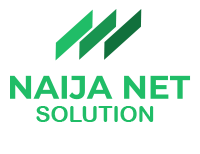In an increasingly digital world, your website is often the first point of contact for customers, partners, and clients. It serves as a virtual storefront, a platform for communication, and a repository of valuable data. As such, ensuring the security of your website is paramount. Website security is not a luxury; it’s a necessity. In this article, we’ll delve into the world of website security, exploring the threats websites face, the technologies that safeguard them, and the best practices to protect your online assets.

Understanding the Threat Landscape
The internet is replete with threats to websites, ranging from automated bots seeking vulnerabilities to malicious actors aiming to steal sensitive data or deface your digital presence. Some common threats include:
- Cyberattacks: These encompass a range of malicious activities, from Distributed Denial of Service (DDoS) attacks that overwhelm your site’s servers to SQL injection attacks that exploit vulnerabilities in your database.
- Data Breaches: Cybercriminals often target websites to steal customer data, such as personal information and payment details, which can be sold on the dark web.
- Malware Infections: Malicious software can be injected into your website’s code, compromising both security and user experience.
- Phishing Scams: Fraudulent websites can impersonate your legitimate site to deceive users into revealing sensitive information.
The Building Blocks of Website Security
- SSL Certificates: Secure Sockets Layer (SSL) certificates encrypt data exchanged between your website and its visitors, ensuring that sensitive information remains private. Visitors can identify a secure site by the “https://” prefix and a padlock icon in the browser’s address bar.
- Firewalls: Web application firewalls (WAFs) filter incoming traffic, identifying and blocking suspicious requests or known attack patterns. They act as a protective barrier between your website and potential threats.
- Regular Updates: Outdated software, plugins, or content management systems (CMS) can harbor vulnerabilities. Regularly updating your website’s components is essential to patch known security flaws.
- Strong Authentication: Implement robust authentication methods, such as multi-factor authentication (MFA), to prevent unauthorized access to your website’s backend.
- Backup and Recovery: Regularly back up your website’s data and code. In case of an attack, you can restore your site to a previous, secure state.
Best Practices for Website Security
- Password Policies: Enforce strong password policies for users and administrators, encouraging the use of complex, unique passwords.
- Access Control: Limit access privileges to essential personnel, granting permissions on a need-to-know basis.
- Security Audits: Regularly perform security audits and vulnerability assessments to identify and address potential weaknesses.
- Content Security Policy (CSP): Implement CSP headers to restrict the sources from which your website can load scripts, preventing cross-site scripting (XSS) attacks.
- User Education: Educate your team and users about common security threats, phishing scams, and safe browsing practices.
- Incident Response Plan: Develop a clear incident response plan detailing how your organization will react to security breaches. Swift and informed action can mitigate the impact of an attack.
Conclusion
Website security is not an option; it’s a fundamental requirement in today’s digital landscape. Safeguarding your online assets is a continuous process that demands vigilance and proactive measures. By staying informed about evolving threats, implementing robust security technologies, and adhering to best practices, you can fortify your website against cyberattacks and provide a safe, trustworthy online experience for your visitors. Remember, the security of your website is not just about protecting data; it’s about preserving your brand’s reputation and maintaining the trust of your online audience.



